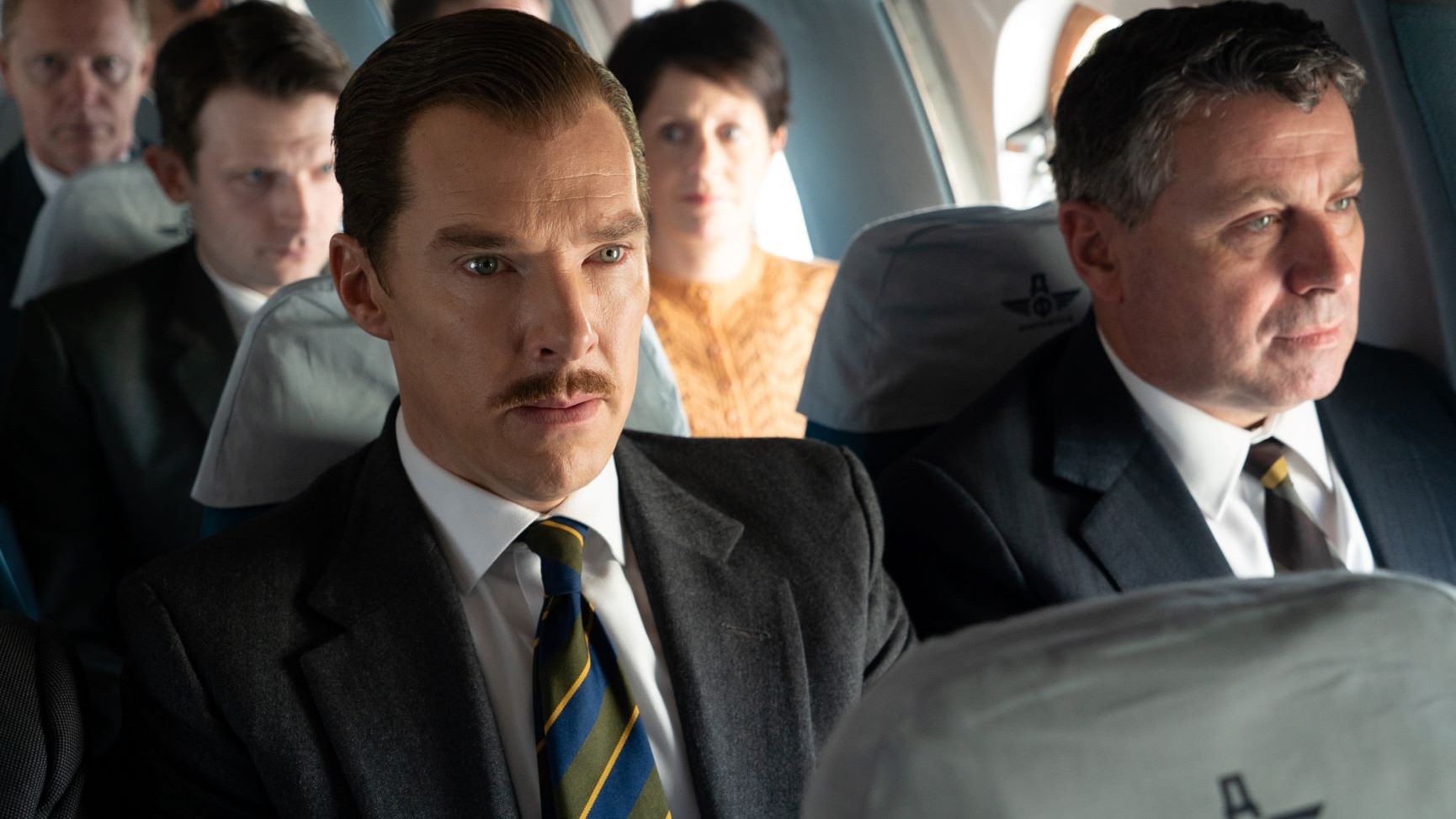What to Watch Verdict
'The Courier' is an entertaining film for how it pulls together a compelling tale of camaraderie from the auspices of a spy thriller.
Pros
- +
💼The central friendship carries the film.
- +
💼Merab Ninidze is a compelling performer.
- +
💼Jessie Buckley turns a tertiary role into a meal.
Cons
- -
💼Centering Benedict Cumberbatch's character feels like a mistake.
- -
💼The main theme is the most grating part of the score.
The Courier is currently only available to watch in theaters (as of March 19, 2021). Due to the COVID-19 pandemic, we recommend checking it out at your local drive-in. If one isn’t available, please be sure to check out state and CDC guidelines before watching in an enclosed space.
The Courier would always be a difficult film to make feel cinematic in scope in a way that would necessitate the big screen treatment. Yes, it’s a true story that skirts around the nuclear Sword of Damocles that was the Cuban Missile Crisis, but it also depends on most of its action taking place out of sight and with minimal actual discussion of events as they play out. The conundrum of characters needing to act normal at all times means that director Dominic Cooke and screenwriter Tom O’Connor needed to get creative in sharing this tale, and the answer they came to is fairly obvious, but in a manner that many other projects might have bungled. If the actions of the characters cannot be highlighted, then clearly you must highlight the characters themselves, or as is the case here, the travails of the people who lived this scenario.
The titular courier and the man I’ll begrudgingly call the protagonist — more on that in a moment — is Greville Wynne (Benedict Cumberbatch), a British businessman engaged in establishing international contracts for goods produced in British factories during the early 1960s. Upon learning that a GRU colonel wishes to defect from the Soviet Union and provide state secrets from the Soviet nuclear program, the British and U.S. governments approach Wynne to act as a courier for information to be smuggled out of the country on his business trips. With assurance that his lack of military and espionage experience will make him entirely unsuspicious, Wynne agrees to expand his business to Russia, developing a relationship with the would-be defector, Colonel Oleg Penkovsky (Merab Ninidze).
Though the premise implies all the hardship of a civilian needing to convincingly lie his way through situations above his experience, Wynne’s lack of knowledge about the contents of his deliveries and his general skill as a businessman make this a virtual non-issue. Instead, the beating heart of the film lies in the humanity shared between Wynne and Penkovsky, whose business relationship blooms into a legitimate friendship and bonds of loyalty to one another. They drink and take trips to the Russian ballet, and in hushed tones they speak of Penkovsky’s future immigration to the U.S., where he ponders that maybe he will be a cowboy. It’s easy to forget that these two are engaging in spycraft and treason as their dialogue and Cooke’s framing suggest that the political divide between Britain and the U.S.S.R. did little to dissuade two like souls from finding shared humanity.
This makes it somewhat frustrating, then, that the bulk of The Courier decides to focus on Wynne’s experiences over Penkovsky’s, especially because Penkovsky is the one shown to actually engage in imminently dangerous activities. Some allowance needs to be made for this film being a British production and for a relative lack of records exploring Penkovsky’s family life, but it feels somewhat disingenuous to frame the friendship as the driving force of the narrative, only for the more actively interesting of the two to inhabit a supporting role. This only becomes more apparent as Ninidze is afforded much more emotional range in his performance than Cumberbatch, who is simply as serviceable as ever.
The difference is made up somewhat in exploring Wynne’s family life, as his troubled wife (Jessie Buckley, making a meal out of a limited role) worries that these constant trips to Russia hint at a relapse into marital infidelity. Exploring the collateral consequences of Wynne’s need to lie about his role as makeshift spy is a solid enough subplot, but we don’t get as much of a view into Wynne’s interior life as nearly anyone around him, making his position as the supposed lead of the film all the more baffling. This truly comes to a head in a protracted third act that, to my knowledge, does reflect what happened to the real Greville Wynne, but is emotionally unearned as it prioritizes the presentation of his suffering over all else, including that friendship with Penkovsky.
Even with that misplaced priority in story economy, The Courier is an entertaining film for how it pulls together a compelling tale of camaraderie from the auspices of a spy thriller. Some narrative choices may be frustrating – as well as some technical ones, such as the obnoxious main theme that layers over the score like they ran out of budget for music and only had a French horn on hand – but the strengths of the underlying conceit are strong enough to carry it through. Ultimately, it’s not about the packages delivered, but it’s about the friends made along the way.
The Courier opens in theaters on March 19, 2021.
Leigh Monson has been a professional film critic and writer for six years, with bylines at Birth.Movies.Death., SlashFilm and Polygon. Attorney by day, cinephile by night and delicious snack by mid-afternoon, Leigh loves queer cinema and deconstructing genre tropes. If you like insights into recent films and love stupid puns, you can follow them on Twitter.












